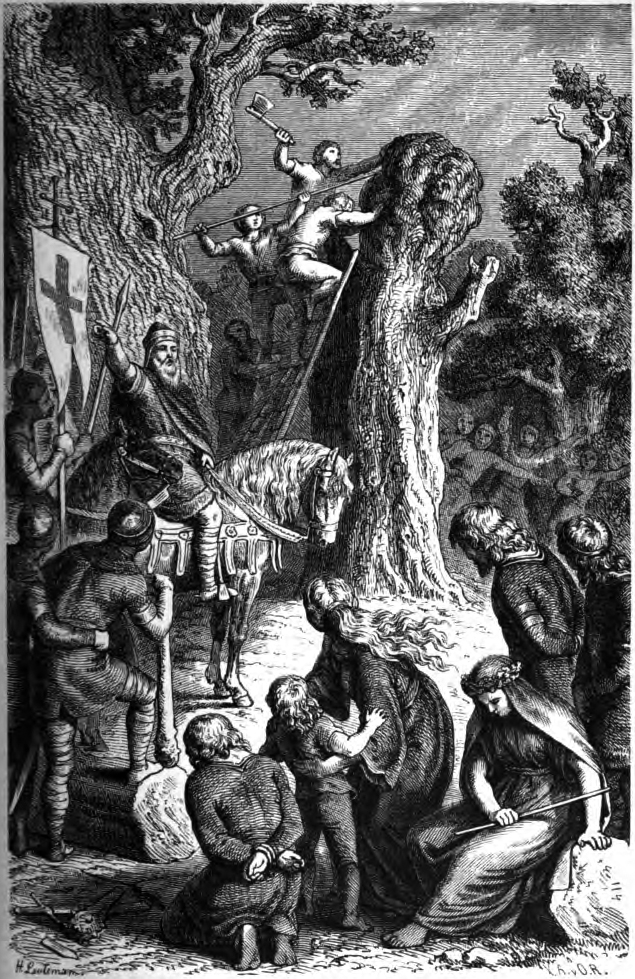 |
| The Destruction of Irminsul by Charlemagne |
It's strange that the Bible's desert wandering, donkey riding cast of characters got promoted to the front and center of the stage of European religion while the rest of the characters of Northern European mythology were demoted to, at best, fictional character status or were even forgotten. Very few people today would think Odin or Zeus were historical figures, yet many people in the western world readily conflate Exodus with history and imagine that story is our, that is, Western people's patrimony rather than an alien invasive fable.
At various times and in various places, authorities introduced new gods or created new religions to bring people of diverse backgrounds together. For example, the Ptolomies created the cult and god Serapis to unite Egyptian and Greek citizens. Christianity was similarly imposed on European people through a mix of violent coercion, cross-cultural curiosity, education, and genuine fervor for new religious ideas.
It seems that Christianity adopted features of the Roman Empire as a universal religion that could be aggressively imposed. While nobody really knows how or why the feudal lords of post-Roman Europe adopted Christianity as their creed, perhaps some clues are provided by Charlemagne's reign.
| Migration Period Europe |
 |
| Serf's Up Brah! Mow this Field with a Knife! |
(I should note here that I am not nostalgic for, nor advocating a return to the tribal systems of more ancient times. There's really no reason to believe those arrangements were more rational, more just, or less oppressive than modern systems or even feudal systems.)
Hence, while many people imagine Christianity was successful in Europe owing to some specific features of the religion that made it a tonic for the people, an alternate explanation is that its success is a historic accident and its unique features were the Caesar-like ambitions and corresponding universalism of the church fathers, and Christianity's utility as a psy-op for feudal warlords.
No comments:
Post a Comment